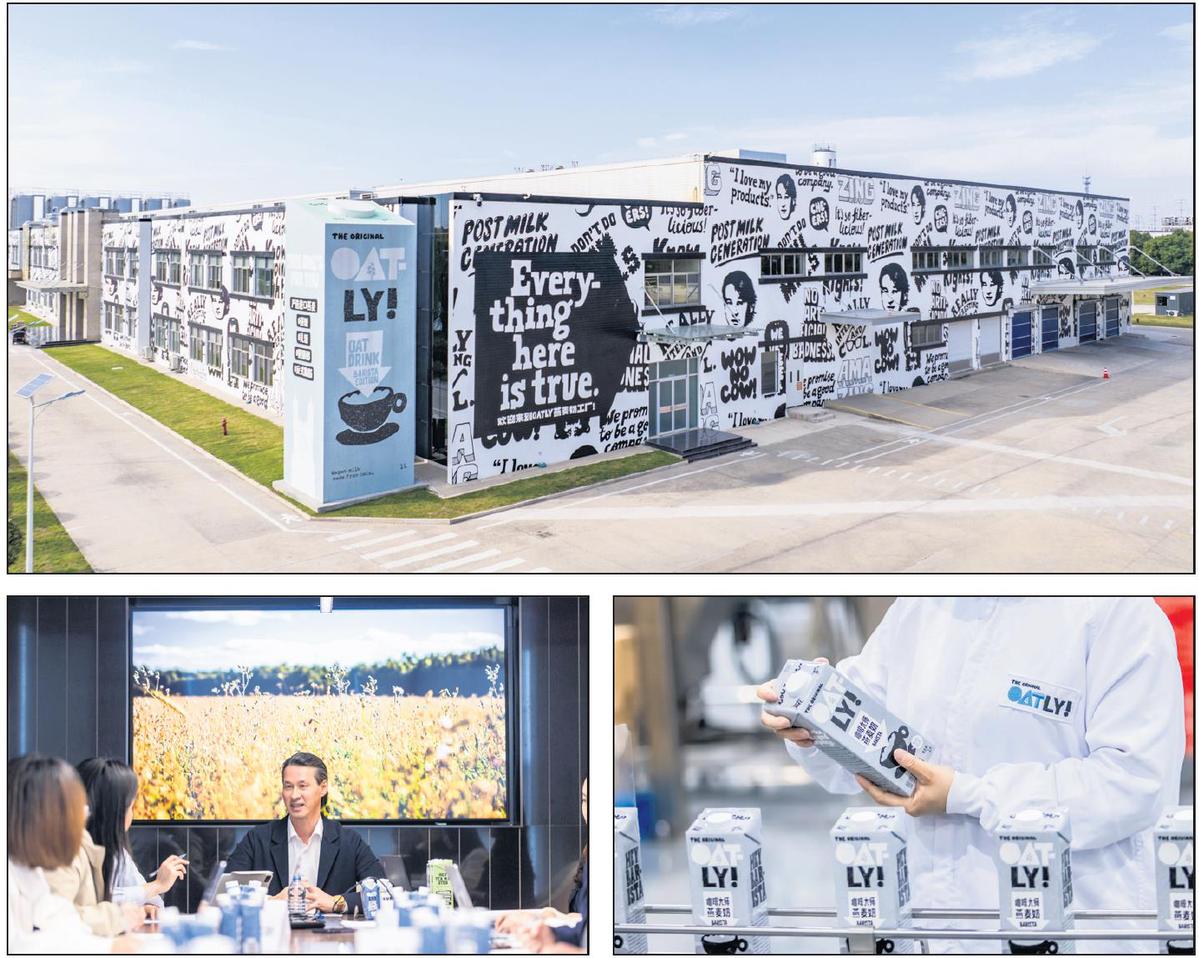Oatly's success in China driven by green ambition

Catering to China's vast consumer base amid intense competition is challenging yet full of opportunities for global food and beverage producers. Oatly, a Swedish plant-based milk company, has managed to succeed within just five years.

Starting with one product, the Barista, and launching exclusively in Shanghai while partnering with a few boutique coffee shops, Oatly not only managed to survive entry into the Chinese market but created a new category of plant-based dairy products and gained a significant following in the region.
Toni Petersson, CEO of Oatly, who recently visited China, described the outcomes that have been achieved by the brand in China as "incredible".
"Building a whole new category is not easy. And you can only do that if you have great people, if you have fantastic products and you have the brand that people resonate with," said Petersson.
Apart from creating a new product category, Oatly China has strengthened commitment to innovation, distribution channel expansion and production expansion to further its mission of growing plant-based products and shifting the food system toward one that's built for planetary and human health.
In terms of innovation, Oatly has collaborated with partners in China to create a range of oat-based products that cater to the Asian market. Nearly 100 new products such as oat ice cream, oat yogurt and oat cream have been developed. The Oatly Tea-Master, an oat-based drink developed in China, which can be used to replace cow's milk for milk tea, was introduced to the Chinese market in March 2022. By the end of 2022, the product had been used in more than 50,000 tea stores around China. More than 20 million oat-based milk teas were sold.
In 2021, Oatly opened the first production facility in China to serve growing demand and more effectively drive a food system shift toward sustainable development in the local market.
Committed to sustainability
The success of Oatly in China is attributed to many factors, including decades of commitment to product development, increasing local demand for healthy and environmentally friendly products, a competent and talented team, and a tailor-made marketing strategy. According to Petersson, the key to their success lies in leading a better way of life that emphasizes sustainability.
"The secret of success is be true. You have to be honest and true about the things you do," said Petersson. "Our approach is we put products on shelves because we want to make the world better. When talk about sustainability and health, you can truthfully look at the consumers in the eye and say this is what we do," said Petersson.
Over the last few years, the brand has been adhering to environmental friendliness and sustainable development throughout its value chain covering production, operations, sourcing, packaging and management.
According to the brand, it plans to achieve a 70 percent reduction in its "climate footprint" globally for each liter of Oatly products and to source 100 percent renewable energy for its production by 2029. It has also promised to release its carbon footprint data to showcase its achievements and call on peers to be a sustainability champion.
The production facility in Ma'anshan, Anhui province, is designed to produce 150 million liters of oat-based products annually at full capacity and is powered by electricity generated from renewable resources. Oatly said it plans to use thermal energy in coming years to achieve zero carbon emissions. The establishment of the factory also reduces the carbon footprint in transportation and will help Oatly's clients better attain sustainability goals.
It insists upon sources of packaging that is made from 100 percent renewable or recycled materials, which is fully recyclable. It also prioritizes packaging that is produced responsibly through appropriate certifications and using renewable energy.
Apart from striving to make a positive effect on the environment, it is making efforts to inspire more individuals and entities. Oatly has established the Restoration Farming system that supports farmers with restorative and regenerative agricultural practices to produce climate neutral oats, and helps farmers transition from livestock to more diverse plant-based farming, with well-researched, locally appropriate solutions. By investing in holistic, on-farm nature-based solutions, it aims to improve soil health, land restoration and diversification in a way that benefits farmers and improves crop nutrition.
Continuing growth
Looking ahead, Oatly will continue to expand in the Chinese market by attaching greater importance to distribution expansion, new products development and efficiency enhancement, according to Petersson. It is accelerating its expansion in the domestic retail market, having already partnered with large supermarkets, convenience stores, and e-commerce platforms to sell their products beyond just coffee shops.
When asked about the role and future potential of the Chinese market, Petersson said: "When it comes to the role of China, it is really important. There's no doubt in my mind that China, in some years, has the potential to be the biggest market in the world for us."
Efforts will also be made to further promote the concept of sustainability to affect more people to contribute to the green development of the country.
tangzhihao@chinadaily.com.cn


















